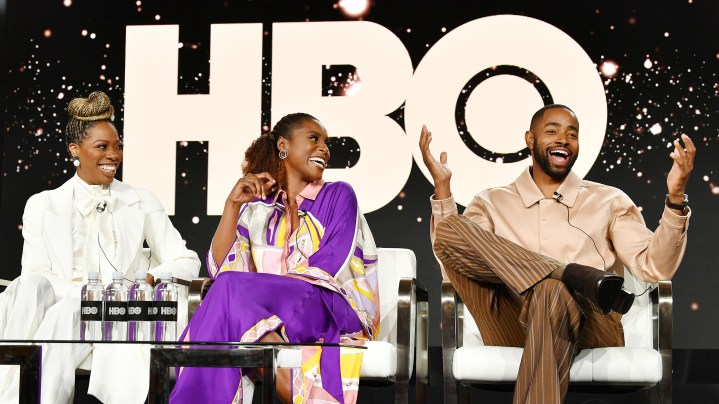
TV’s getting more diverse. But there’s still a long way to go.
TV’s getting more diverse. But there’s still a long way to go.

Hollywood has historically been less diverse than the country as a whole — whiter and more male. Under sustained pressure to be more inclusive, the industry is been making some progress, according to a new report from UCLA. But it’s still whiter and more male that the rest of the country.
The report looks into two seasons of broadcast, cable and digital programming of nearly 1,000 shows.
Women and people of color made gains in nearly all TV employment categories, according to the report. But top executive positions are still dominated by white men. Women are only 32% of studio chair and CEO jobs, and people of color are just 8%.
And the greatest racial and gender disparities are behind the camera — jobs like director, show creator and writer.
Shows like HBO’s “Insecure,” which features a diverse cast of writers and directors, have made a big splash in recent years.
But in TV, according to the UCLA report, only 24% of writers are people of color, and only about 22% of episodes were directed by people of color.
Darnell Hunt, dean of social sciences at UCLA, said this no longer makes business sense.
“The mainstream market itself is diverse,” Hunt said. “If you have executives who are largely white men making all the decisions about what gets made, you’re going to have more misses than hits.”
Debra Zimmerman, executive director of the nonprofit Women Make Movies — which supports directors and producers who work in independent film and television — said Hollywood has always made its decisions based on money.
“The Hollywood studios and the television networks are concerned with the bottom line,” she said. “What they need to realize is that diversity and gender and race really pays.”
She said the numbers in the report are encouraging, but there’s a long road ahead.
There’s a lot happening in the world. Through it all, Marketplace is here for you.
You rely on Marketplace to break down the world’s events and tell you how it affects you in a fact-based, approachable way. We rely on your financial support to keep making that possible.
Your donation today powers the independent journalism that you rely on. For just $5/month, you can help sustain Marketplace so we can keep reporting on the things that matter to you.

















